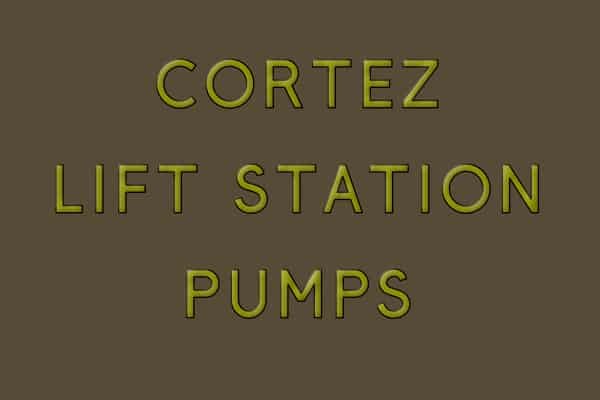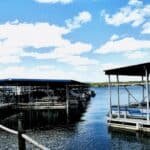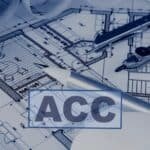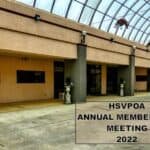At the January 26, 2022 Board Meeting Board Director Gary Belair presented a motion for the purchase of two 60 Horsepower Flygt pumps for a cost of $62,370.10 each, totaling $124,740.19. This includes sales tax. To read the previous discussion on this item, please click here.
Even though bids were submitted to three vendors, only two responded. (Please see the motion below.)
Board Discussed Budgeting
I did not hear a second at this point, but I may have just missed it. This is not a full transcription. You can read the full motion below. Director Chris Jones addressed what was stated by Belair when reading the motion. Specifically, Jones said, “you said the combined budget from last year and this year is $114,000 and you are asking for $124,000?”
Belair said, “right.”
Jone asked, “when do we get more strict about that being in the budget? $10,000 is not that much in the grand scheme of things with $124,000, but every time we go a little over budget, a little over budget, it adds up. So when do we get more strict about that?”
Director Tucker Omohundro responded, “well, I think that’s there in the budgeting process. You have to budget right to start with. Correct me if I am wrong, but everything we budget for today, two months later, it is higher. So I don’t know whether we start just padding our budget or what because cars go up every…you know, everything goes up every day. So I don’t know the answer.”
Director Pam Avila stated, “a budget is basically, is really basically a forecast.”
Jones said, “sure, I get it.”
Avila continued, “and so it’s the best guesstimate…”
Jones replied, “sure.”
Avila said, “and as prices go up and things change, we have to be able to adapt or not buy them. Because it would take us over budget.”
Jones, said “that’s what I am asking. When do we just not – do we ever get to that point? Because it all adds up. And at the end of the year it is like, ‘oh, we were over budget by X thousands and thousands of dollars. We’re in tight constraints, salary-wise and infrastructure-wise and money-wise. When do we draw the line?”
Belair replied, “these proposals brought to the board, at least in my experience, so far, is at the point where we have no choice. We have to keep these lift stations operating so that people can flush their toilets.”
Jones said, “I am not talking the specific of this one. I agree we need these things. That is fine. I am asking more of a general question. When do we stick to the budget?”
Chair, Joanie Corry, said, “we have to keep our eyes open. Is it necessary?”
Omohundro said, “I think it is like you said. It all comes down to the budget process. We should have been budgeting $125,000 for this, is kind of what you are saying, I think. Or…”
Jones stated, “he might not have known that when [indecipherable]. It changes. I get it. I do. I just do. I am just asking when are we going to have those hard conversations, rather than saying, ‘oh, it’s a little over. Okay, well, we’ll just do it.'”
Avila said, “that’s why we ask them to give us, now, a fact sheet, where basically they are not only telling us what they’re asking for, but why they are asking for it and how much it is going to cost. And when we get those, in the Discussion Sessions, that’s our opportunity to take a look at it and say, ‘you don’t really need this.’ So that is kind of our gatekeeper for that type of thing. That is why we have a Discussion Session. That’s why we’ve asked them to bring us those fact sheets so that we know, do we really need it or do we not really need it? And then we make a decision.”
Only One Vendor Provided a Usable Bid
Omohundro replied, “one thing I find interesting and I was going to bring up is the fact that we asked three people to bid on this. Only one bid what we wanted them to bid. The other one didn’t bid at all. One bid something we couldn’t even use. So that was a waste of time. Are these the only people and unfortunately these days they very well may be the only people. We may not be able to get a bid from somebody. Try to get a plumber to come to your house right now. You won’t even get a return phone call. I’m having to do – I’m having some survey work. I’m on my fifth surveyor that I’ve talked to in nine or ten months and I know people and I can’t get a survey done. I mean, I’ve offered to pay them double what they normally charge, just to get the job done. It’s just a mess.”
Corry said, “it is. And from looking at the scope of work that was in this information – I mean, it appears to me that you have to do it because they are going to take that into their shop and make it so it will fit into what we have. Correct statement?”
Temple responded, “yes, that is correct. They will do the whole installation for us. That’s all part of that. So that is a little extra cost added to their price.”
Omohundro asked, “when you budgeted for this, how did you come up with the budgeted number to start with. Where did that come from?”
Temple answered, “so last year, we were wanting to do it last year and we had got some preliminary prices and it was in the $55,000 range. That’s where you see the budget from last year at $54,974. I think that was our actual price. But I think we budgeted $60,000.
Chris Boutzale, Superintendent of Water and Wastewater Plants, said, “in June we budgeted $60,000, which was close to the actual price of it then, last year. We got the bids in the first of December and I asked them if we could get the second pump at the same price as we are getting the first one, if we held it over and got them both approved by the Board in January. They agreed to hold that price for that amount of time. But right now, everything is changing month to month. You can’t rely on any price for more than just a short period of time. And like I say, everything is going up and these are made and they take 14 weeks to get in. They are not something sitting on the shelf.”
More Contingencies May Need to Be Added in Future Proposals
Temple stated, “we’ve tried to kind of spread things out a little so we put in a $50,000 or $60,000 purchase last year and do another $50,000 or $60,000 purchase this year to try to spread the cash flow out. As it turns out, we thought it would be a better idea to just go ahead and combine both of them into one budget. In the future, since we are a little bit better off financially, we’ll try to do the whole package in that budget year. But, I think you’re still going to see at the wastewater treatment plants, like for example, we’re still going to be designing and budgeting some work in this year that is also going to use the funds out of next year and it just kind of continues so we can spread this out until we do a big bond issue if we ever do that. Otherwise, we’ve got to kind of spread our purchases out with our cash flow. And this is an example of it. And then you get caught up in the time process. It takes a little bit more time to do that with these price and supply chain problems that are messing with our pricing. I understand we want to practice our budget and be strict on it, but what you’re going to see happen now, if we are going to be held accountable to stay within our budget, we’re going to add more contingencies in our budget forecasting, to allow for that.”
Omohundro said, “I think that is something you need to look at doing. You had a good number, but obviously, that number is not good anymore.”
Temple said, “right.”
Corry said, “I am sure the new General Manager will handle that.”
As We Move Through the Year, We Will Find Places to Save Money
Interim General Manager, John Paul, said, “to answer your question directly – we’re in January of this year. You’ve got a project that is $10,000 over budget here. As we move through the year, we’re going to find other places we can save that $10,000 on another project, whatever. And that will be the General Manager’s job, to coordinate those purchases. But we’ll be able to save that $10,000 in another place. And if it gets to the point in the year where we can’t do that, everything is going up, then you’re going to have to make some hard choices about what you don’t buy. But it won’t be on critical stuff like lift stations that have to be replaced.”
Plans To Gradually Move Away From Carryover Process
Belair added, “there is a policy coming from the Finance [and Planning] Committee that will indirectly address some of these issues. Now the budget process includes everything we’ve discussed so far in basing the cost of items on known amounts. So there is a policy proposal coming from the Finance Committee. Two, as a matter of fact. One is will be titled, ‘Fixed Asset Funds.’ So that we gradually move away from this carryover process that we’ve had in the past where a fixed asset purchase was budgeted and planned in one year but did not happen for one reason or another – there wasn’t enough money. So it was carried over to the next year, part of the funds, possibly. So, if this proposal is accepted by the Board, it will require some planning, more future planning. So that when something happens, the pump needs to be replaced, we have a known price, the money is in the funds to cover it. That will be in for discussion, hopefully, the first Discussion Session in February.
The motion passed unanimously.
Cortez Lift Station Pumps Motion at 1-26-22 HSVPOA Board Meeting
15_Cortez_Lift_Station_PumpsBy Cheryl Dowden, January 30, 2022
✺ ✺ ✺ ✺ ✺
Thank you for reading. If you like, please comment below; we love to hear your opinion. Thank you for keeping the comments polite and on topic. Please use your real name. If you are an HSV Property Owner, please join us in our private Facebook Group. Click here to join the group. If you would like to submit an article for publication, please contact us through this website. Be sure to bookmark this website.












John C Sowers
01/30/2022 — 8:08 pm
I would ask Chris Jones if other local businesses in and around HSV (including food businesses) have experienced large increases in product and supply costs because of inflation, fuel prices, and extremely unwise Federal government economic mandates.